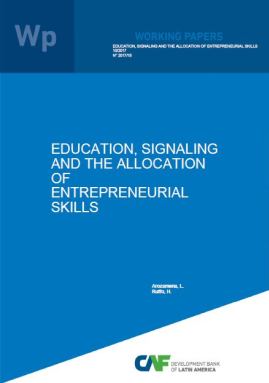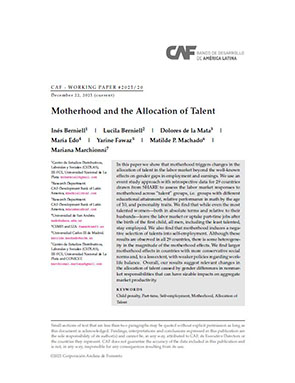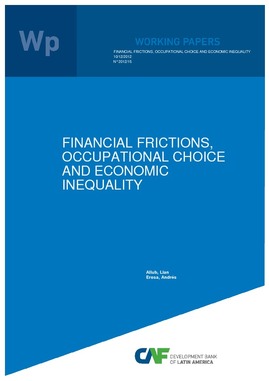Education, signaling and the allocation of entrepreneurial skills
Resumen
We assess the allocative importance of education when workers can choose to self-employ. To do so, we build a model combining educational choices with the labor market and selfemployment. Education can increase workers' human capital and may signal their ability as well. Both roles can be more important for working in a firm than for self-employment. We show that when education performs worse its signaling role, firms cannot distinguish high and low productivity workers, and there is a higher proportion of workers that allocate in less productive activities as self-employed. This option further reduces incentives to educate, given that education is less valuable for a worker if self-employed. Lowering the cost of education increases the number of educated workers, but does not solve the signaling problem, and could generate stronger misallocation.
Materia
Fecha
2017-10-02Citar de esta publicación
Item perteneciente a la Colección
Autor
Arozamena, LeandroRuffo, Hernán
Items Relacionados
Motherhood and the Allocation of Talent
In this paper we show that motherhood triggers changes in the allocation of talent in the labor market beyond the well-known effects on gender gaps in ...
Financial Frictions, Occupational Choice and Economic Inequality
We develop a quantitative theory of entrepreneurship, income inequality, and financial frictions disciplined with household data from Brazil. The theory ...
Heterogeneous effects of automation: How are young workers affected by a changing labor market?
We study the effect of automation on labor market outcomes with a focus on young workers and the case of Chile. We develop an index of routine task ...






